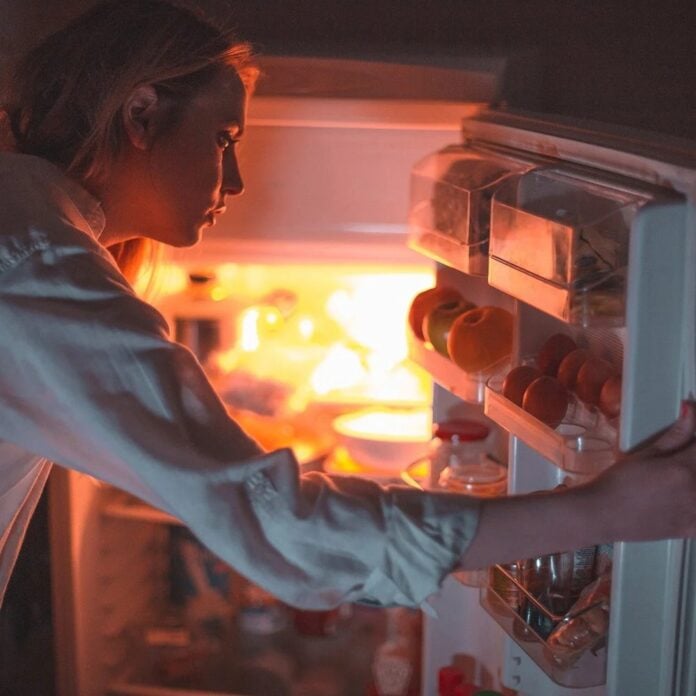Struggling to fall asleep? You’re not alone. Many people underestimate how much their diet impacts their rest. While a perfect night’s sleep isn’t guaranteed by food alone, certain choices can gently nudge your body toward relaxation, while others actively disrupt your sleep cycle. This guide breaks down the science-backed foods that may help you sleep better, and the ones you should avoid before bed.
Why Food Matters for Sleep
Sleep isn’t just about winding down; it’s a complex biological process influenced by hormones, neurotransmitters, and your nervous system. Certain nutrients play key roles in regulating these functions. For example, tryptophan is an amino acid that helps produce serotonin and melatonin – hormones crucial for sleep. Magnesium and potassium support muscle relaxation, while carbohydrates can help your brain absorb tryptophan more effectively.
However, it’s not just about what you eat; when and how much matter too. A late, heavy meal can cause indigestion, while caffeine or alcohol can interfere with sleep quality.
7 Foods That May Promote Better Sleep
These foods aren’t magic bullets, but they contain nutrients linked to improved sleep. Incorporating them into your routine may make a difference over time.
- Tart Cherries (and Juice): Rich in melatonin and antioxidants, tart cherries have been shown in small studies to slightly extend sleep time and efficiency.
- Kiwi: One trial found that eating two kiwis before bed helped participants fall asleep faster and sleep longer, thanks to its serotonin and antioxidant content.
- Nuts (Almonds, Walnuts, Pistachios): These provide magnesium, melatonin, and healthy fats, which may support relaxation and stabilize blood sugar overnight.
- Bananas: A good source of magnesium, potassium, and tryptophan, bananas may help relax muscles and ease tension.
- Warm Milk (or Dairy Alternatives): Dairy contains tryptophan and calcium, both used to make melatonin. The warmth itself can cue your body to wind down.
- Fatty Fish (Salmon, Mackerel, Sardines): Provides omega-3s and vitamin D, both linked to serotonin regulation and better sleep quality.
- Whole Grains (Oats, Quinoa, Brown Rice): May help your body absorb tryptophan more effectively and maintain steady evening energy.
Foods That Disrupt Sleep: What to Avoid
These foods can actively work against a good night’s rest.
- Caffeine: Even small doses can linger for hours, blocking adenosine (the sleep-inducing chemical). Cut it off after noon.
- Alcohol: Though it may initially make you drowsy, it fragments sleep later in the night. Drink with dinner, not right before bed.
- Heavy/High-Fat Meals: Take longer to digest, causing indigestion or reflux. Eat lighter meals closer to bedtime.
- Spicy/Acidic Foods: Trigger heartburn when lying down. Avoid them at least two hours before sleep.
- Sugar/Ultra-Processed Foods: Cause blood sugar spikes and crashes, disrupting sleep. Pair them with protein or fat if you must.
- Large Portions of Protein: Keep your body digesting instead of resting. Opt for lighter proteins like eggs, tofu, or fish.
- Aged/Fermented Foods: Contain tyramine, which may trigger alertness. Enjoy them earlier in the day.
Building a Sleep-Friendly Routine: 8 Practical Tips
The most effective approach isn’t just about what you eat, but how you incorporate it into your pre-sleep routine.
- Time Your Meals: Finish larger meals 2-3 hours before bed to avoid indigestion.
- Balance Evening Snacks: Pair carbs and protein (e.g., toast with almond butter) to aid tryptophan absorption.
- Hydrate Earlier: Drink most of your fluids earlier in the evening to avoid nighttime wake-ups.
- Cut Caffeine: Be mindful of its long half-life (up to 10 hours) and cut it off after noon.
- Moderate Alcohol: If you drink, do so with dinner, not right before bed.
- Create a Ritual: Warm drinks or light snacks in a dim, screen-free environment can signal relaxation.
- Consistency Matters: Regular meal times help regulate your internal clock.
- Listen to Your Body: Track what works and what doesn’t for you.
FAQs: Addressing Common Concerns
- Are there foods that induce sleep? None will instantly knock you out, but some (like tart cherries) contain melatonin and may slightly improve sleep.
- Is eating before bed bad? It depends. A large meal can disrupt sleep, but a small, balanced snack may help.
- Why do some foods help sleep? Nutrients like tryptophan, magnesium, and potassium regulate sleep hormones and muscle relaxation.
- What’s the best drink before bed? Warm milk or herbal tea (chamomile, rooibos) can be soothing.
The Bottom Line
Improving your sleep through diet isn’t about strict rules; it’s about making informed choices and building a routine that supports your body’s natural rhythms. By prioritizing mindful eating and consistent habits, you can create a sleep-friendly environment that helps you wake up refreshed and energized






























